Which upcoming electric cars are already delayed due to the pandemic, which ones are staying on schedule?
Which car company suggested that it might offer a higher highway range than any current model from Tesla?
This is our look back at the Week In Reverse—right here at Green Car Reports—for the week ending April 3, 2020.
By far the most important story of the week here hit on Tuesday morning. The Trump administration released the long-awaited Final Rule for U.S. gas mileage targets. Although automakers, companies, and environmental groups are still scrambling to analyze its impact, this rule will affect the shape of American-market vehicles for years.
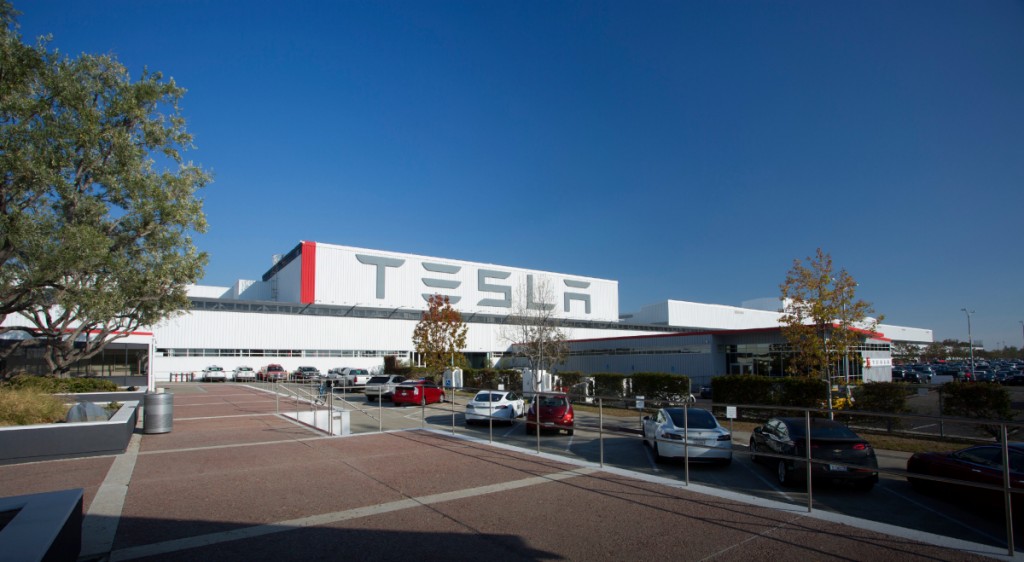
Tesla factory, Fremont, California
In good product news, Based on production numbers, Tesla had its strongest first quarter ever. That includes output from the Shanghai factory.
General Motors and Honda have agreed to partner on two future Honda electric vehicles. The models, set to arrive in 2024, will use GM’s Ultium battery and propulsion strategy and be built in the U.S. GM also confirmed earlier in the week that upcoming EVs from GMC Hummer and Cadillac will remain on schedule—although the Chevy Bolt EV refresh (better seats!) has been delayed to the 2022 model year.
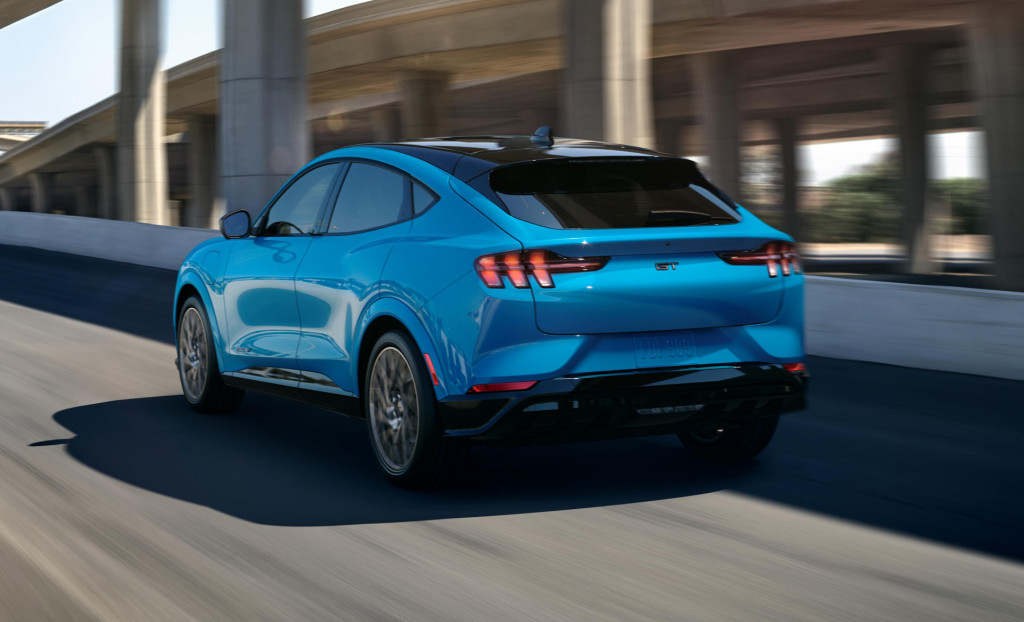
2021 Ford Mustang Mach-E First Edition
Ford said that its Mustang Mach-E electric SUV remains on schedule, with the close-knit “Team Edison” working from home toward a fall arrival.
Rivian is already being realistic about the impact. The Rivian R1T pickup and R1S SUV have been likely delayed—a little while—and Rivian brought us up to date with a great video on what it’s taken to update the Illinois plant for EVs.
BYD and Toyota have partnered up for electric vehicle R&D in China. It’s one of many battery and automaker partnerships that Toyota has entered in the past year or so. BYD just earlier in the week revealed the Blade battey—a safety-focused unit that will power the upcoming flagship for its lineup, the Han sedan.
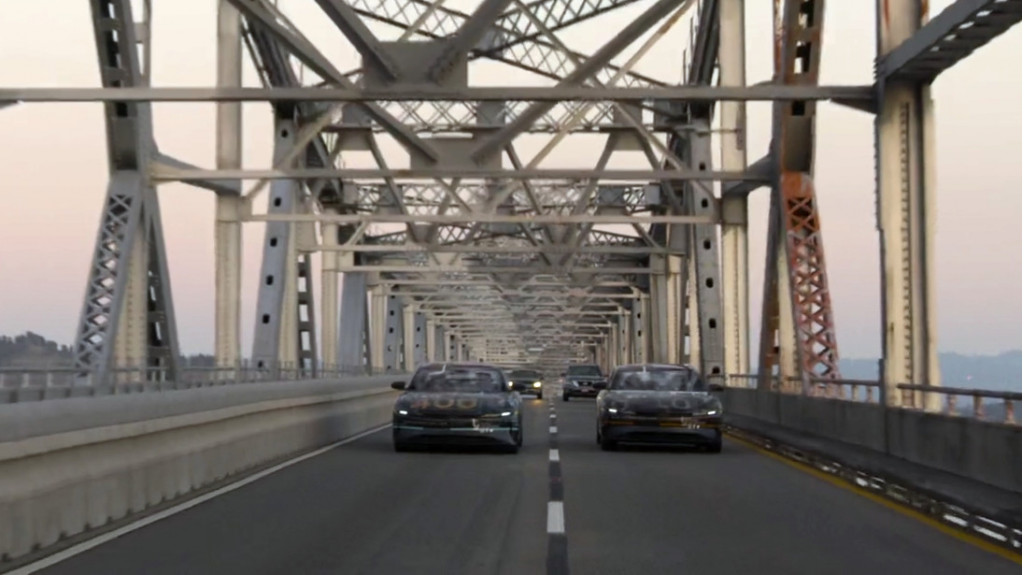
Lucid Air range test video - Richmond San Rafael Bridge
The Lucid Air electric sedan, in prototype form, showed that it can easily do the San Francisco-to-LA trip that California electric-car owners have long targeted—with only one charge for each direction. It did more than 400 miles in each direction at the speed limit and with both the coast and inland routes.
Wheel-hub motors have made the most buzz so far for the Endurance, the electric pickup to be built by Lordstown Motors in a former GM plant in Ohio.
Karma Automotive boasted this week of the flexibility of its E-Flex extended-range EV platform—derived from that of the original Fisker Karma—for everything from vans to supercars.
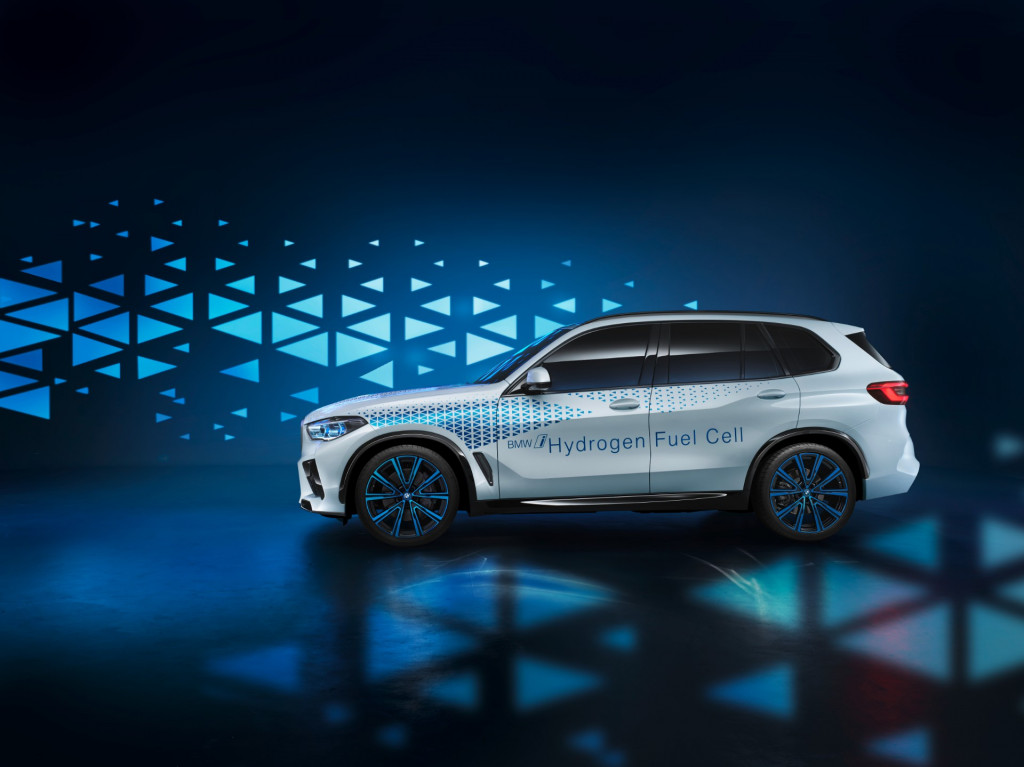
BMW i Hydrogen Next development vehicle (fuel-cell X5)
Battery or fuel cell? Volkswagen laid out a clear argument for why one is the clear winner for passenger vehicles for the foreseeable future. On that matter, BMW and Toyota are doubling down on fuel cells. Toyota’s next-generation hydrogen fuel-cell stack is going into at least two upcoming vehicles. One of them is the 2021 Toyota Mirai we’ve already previewed; the other is the i Hydrogen Next fuel-cell SUV that BMW this week revealed will have a battery boost system for stronger acceleration than the Mirai.
Jeep’s global boss recently reiterated that the brand is going not just electrified, with plug-in hybrids, but electric—and that some of those Jeep EVs are coming to the U.S.
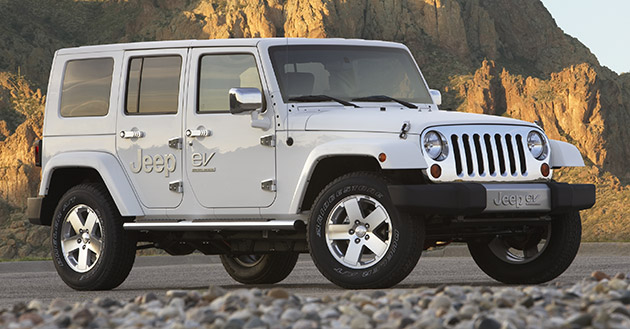
Jeep Wrangler plug-in hybrid
Earlier in the week, rapidly falling fuel prices due to the health and economic crisis prompted several stories. A UK study found that electric cars are now cleaner than gasoline cars in 95% of the world. As gasoline prices plunged, Aptera recently pitched its solar-charged, hyper-efficient electric vehicle as a reaction to climate change and the conflict over oil. And ethanol is up against increasing challenges this year, as an oil glut and cheap gas are leading refiners to halt orders from agribusiness.
In Europe, battery-electric trains will soon become widespread, as passenger rail lines have placed a number of orders for these trains that have massive lithium-ion battery packs and can bridge gaps between electrified rail.
_______________________________________













